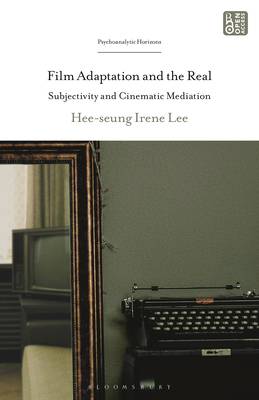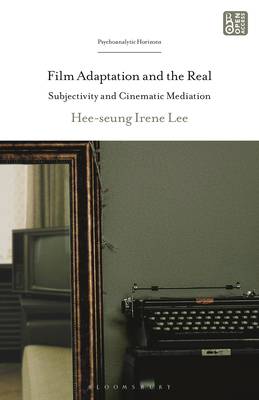
- Afhalen na 1 uur in een winkel met voorraad
- Gratis thuislevering in België vanaf € 30
- Ruim aanbod met 7 miljoen producten
- Afhalen na 1 uur in een winkel met voorraad
- Gratis thuislevering in België vanaf € 30
- Ruim aanbod met 7 miljoen producten
Zoeken
€ 152,95
+ 305 punten
Uitvoering
Omschrijving
A psychoanalytic approach to screen adaptation that examines the role of deep-rooted desire evident in the persisting media practice of adaptation from literature to film.
The prevalence of adaptations in cinema - from literary texts - is striking. What does this lead us to think about adaptation? This open access book answers this question from a psychoanalytic perspective by exploring the psychic dynamics underlying screen adaptation as a practice, offering an intriguing window into the desire for adaptation beyond semiotic parameters and industrial factors. Through a series of examples - from Hamlet and Hitchcock, to Kubrick's The Shining, and Jonze's Adaptation - the book theorizes film adaptations in relation to their originals. Drawing on the theories of Freud and Lacan, Hee-seung Irene Lee rigorously explains psychoanalytic concepts such as desire, the drive, the Oedipus complex, the uncanny, and anxiety, which are prevalent and remain useful in the vast field of cultural studies. As a result, readers can easily follow the book's case studies of canonical film adaptations with interest. At the same time, the author attempts to challenge, expand, and renew the usual definition of film adaptation. This fosters interdisciplinary dialogue between philosophical and psychoanalytic speculations on subjectivity and frames adaptation not merely as a specific mode of filmmaking but a universal, primordial task of every speaking being. The ebook editions of this book are available open access under a CC BY-NC-ND 4.0 licence on bloomsburycollections.com.Specificaties
Betrokkenen
- Auteur(s):
- Uitgeverij:
Inhoud
- Aantal bladzijden:
- 256
- Taal:
- Engels
- Reeks:
Eigenschappen
- Productcode (EAN):
- 9798765138380
- Verschijningsdatum:
- 2/10/2025
- Uitvoering:
- Hardcover
- Formaat:
- Genaaid
- Afmetingen:
- 140 mm x 216 mm
- Gewicht:
- 435 g

Alleen bij Standaard Boekhandel
+ 305 punten op je klantenkaart van Standaard Boekhandel
Beoordelingen
We publiceren alleen reviews die voldoen aan de voorwaarden voor reviews. Bekijk onze voorwaarden voor reviews.







